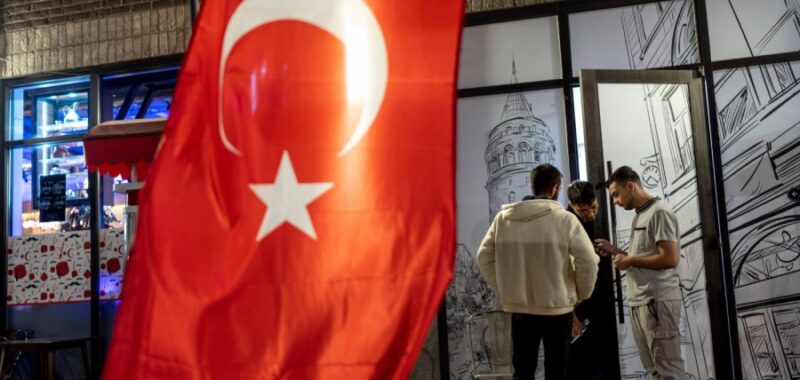
In this corner of Michigan, with the highest percentage of Arab Americans among all cities in the U.S., Donald Trump soundly defeated Kamala Harris. Voters in Arab American and Muslim communities were angry that Joe Biden and Kamala Harris could do little to stop the war between Israel and Hamas in Gaza.
These voters may know something that the rest of us do not.
In the Arab world, the term “wasta” is a colloquial expression describing the use of personal connections or influential relationships to gain advantage and favor. A man with wasta rewards loyalty, values tribe over governing norms, and trades in favors rather than acts on principle.
Donald Trump has wasta.
Wasta has enormous cultural significance in the Middle East. So it is not surprising that Israeli Prime Minister Netanyahu was the first foreign leader to call the president-elect, breathlessly congratulating Trump for history’s greatest comeback.
Not to be outdone, Mohammed bin Salman the Saudi crown prince, then called Trump, saying his kingdom was looking forward to “deepening historic and strategic relations” with the United States. Both Netanyahu and bin Salman understood that the biggest event in the Middle East was Trump’s election. They both know he is unpredictable and personal, with an unmatched ego and perceived strength on the street.
They understand Trump is not bound by post-World War II norms, international values, or respect for the multinational institutions — all of which are recent developments in an ancient world of empires and biblical history, and none of which have served Middle Easterners particularly well.
So, both Netanyahu and bin Salman kissed the ring of the new boss with good reason.
Trump chose the Saudi capital, Riyadh, for his first overseas trip as president in 2017. He recognized Jerusalem as Israel’s capital and ordered the military strike on Iran’s Islamic Revolutionary Guard Corps commander, Qasem Soleimani, killing the general in what was later described as a preemptive attack.
Most notably, Donald Trump brokered the Abraham Accords, which brought diplomatic and economic normalization between Israel and the United Arab Emirates and several other Arab states.
For these Dearborn voters, Trump’s wasta may seem more likely to end the wars in Gaza and Lebanon rather than continue with Joe Biden’s impotent shuttle diplomacy. If Trump wants to end the bloodshed, he can. Here is how.
First, remind Netanyahu that he is the junior partner in the U.S.-Israel relationship. Trump “had a bad experience with Bibi.”
In Trump’s own words, “The first person that congratulated [Biden] was Bibi Netanyahu, the man that I did more for than any other person I dealt with. … Bibi could have stayed quiet. He has made a terrible mistake.”
American tax dollars fund Israel’s defense, and yet Netanyahu treats Biden with near contempt. Biden simply did not stand up to Netanyahu. In Trump’s world, Bibi will likely have to bend the knee.
Second, retire Palestinian Authority President Mahmoud Abbas. Trump once quipped “I am looking at two-state, and one-state, and I like the one that both parties like,” With that phrase, then-President Trump departed from decades of bipartisan U.S. foreign policy.
The Palestinians were ecstatic and, at varying times, Trump and Abbas had an amicable relationship. Just this summer, Trump posted a letter from the Palestinian leader, after the assassination attempt and not coincidentally right before Trump’s meeting with Netanyahu.
Still, Abbas is in the 19th year of a four-year term. He is old, corrupt, disliked, and widely seen as an obstacle to Palestinian aspirations. Trump would do well to push Abbas out of office.
Third, block Iranian Ayatollah Khamenei’s nuclear ambitions. The Biden administration micro-managed Israel’s response to Iran’s October attack. That chapter has closed, for now. Biden and his national security team checked Israeli war designs against Iranian oil and nuclear facilities, but in so doing may have escalated Israeli attacks in northern Gaza and southern Lebanon, leaving millions of civilians to suffer an unimaginable humanitarian nightmare.
Meanwhile, Iran is certainly accelerating its nuclear ambitions. Trump’s unconventional and unpredictable foreign policy could expand conflict in the region or thwart Iranian ambitions. Most likely, the mullahs in Tehran prefer to stay in power rather than confront an unleashed Israel or an unpredictable Trump.
Fourth, close the deal with the Saudi crown prince. The Saudis are ready for peace with Israel in exchange for an irreversible path toward a Palestinian state and a full ceasefire with a release of hostages. Expect the Saudis to further sweeten the deal by opening their markets, diversifying their economy, and finding a special place for Jared Kushner’s Affinity Ventures, funded by the Kingdom’s two billion dollar investment.
Dearborn voters know better than most of us the customs, practices and culture of the Middle East. Despite the Muslim ban, anti-immigrant rhetoric and Israeli-American activist Miriam Adelson’s $100 million donation to the Trump campaign, Michigan’s largest Arab American community decisively voted for Trump over Harris.
In their view, an American president with wasta and unbounded ego may be the best hope to end the bloodshed and carve out a future for the Palestinians. The rest of us will see if Dearborn made the right bet.
R. David Harden is a former assistant administrator at USAID’s bureau for democracy, conflict and humanitarian assistance; USAID mission director to the West Bank and Gaza; and senior adviser to President Barack Obama’s special envoy for Middle East peace.

